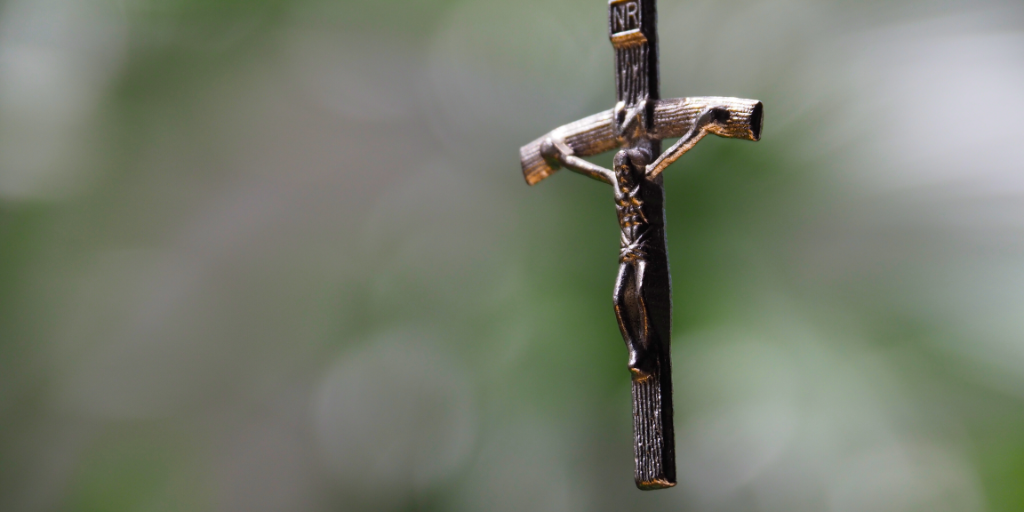
In the second of a two-part series on spiritual warfare, Jane Korvemaker discusses how to defend ourselves from spiritual attacks.
There are two equal and opposite errors into which our race can fall about the devils. One is to disbelieve in their existence. The other is to believe, and to feel an excessive and unhealthy interest in them. (C.S. Lewis, The Screwtape Letters, Preface)
If you missed it, you can read Part I of this series, What Is Spiritual Warfare?
As C.S. Lewis points out in the quote above, we can diminish or give too much credit to the devil and his works. Up until the last decade or so, the resources to guide the faithful have been few and far between. The unspoken adage “Don’t ask more than necessary” and “Don’t stir that pot” are unhelpful to a person who has little to no information to start.
“How many questions are necessary?”
“Which pot?”
If we do not know what we are dealing with or how it works, we cannot hope to be vigilant.
Prevention
Three things I’ve learned:- The best defense is an active sacramental life. Intentionally living out our faith in the ecclesial community and our private lives. Attending Mass and confession regularly are acts that allow God’s grace to act as a protective balm for the majority of us. Actively avoiding sin shuts the big proverbial door on access to us; the diabolical in the spiritual world are often shut out.
- As untrained faithful (even after reading and listening to podcasts on it!) it is very hard to definitively say whether there is specific demonic influence or not. Be willing to test things. By test things, I mean question ourselves first and be brutally honest: Have I entered into sin, even inadvertently? Followed by: Do I need to go to confession? Sin disquiets our conscience, and we should pay attention to when we can’t give ourselves a complete pass (see note). God wants to make us whole again in him and has given us the sacraments to help.
- Apart from attending the first two points above, more often than not, were we to go to an exorcist for help the next thing to happen would be to attend counseling. Psychological issues tend to be addressed first. If I have a concern, therapy may address the underlying issue. Resolving psychological or psychiatric troubles is not the purpose of exorcisms. Exorcists are ministers who use a sacramental tool (not a sacrament) to help find out the reason that demons are present and to remove that reason as best as they are able. They are typically not counselors, though they may offer guidance. For best practices, therapy should come from a third party as well.

But how do I know?
If it comes to wondering if you yourself (or a close friend or relative) are possessed, professionals are often the first to point out the relative rarity of this event. We hear about them because the events are typically extreme, which are cultural signs of a good story. When it comes to possessions, Monsignor Rosetti and Father Martins have shared several similar signs that indicate not everything may be as it seems:
Occult knowledge
While occult often is culturally understood to be almost synonymous with satanic, here it means secret, as in knowing something that is not possible for a regular human to know (for example, they can give very detailed information about a person’s past or present without contact). This type of knowledge is in fact not from a human, but via a demon who is not tied to corporal reality like we humans are.
Fluent knowledge of an unknown language.
A person suddenly using the Latin or Bulgarian language without any previous knowledge, for instance, is a good reason to raise a red flag.
Strength beyond normal human capacity for the person.
A child should not be able to throw an adult across a room, for example.
Aversion to the sacred.
This one is tricky because from what I understand, a very strong demon can withstand what weaker ones cannot. They are beings of deception and will hide their presence as much as they are able, so a layman’s assessment is not necessarily a credible proof of anything.

Beyond a doubt I have been encouraged by the resources I’ve encountered. I appreciate the assurance that God is faithful to us and that a faithful, Catholic life is our best defense in spiritual warfare.
You can find more information on this topic at the USCCB website, church documents on topics of exorcism, prayers for personal use, and the Catechism of the Catholic Church’s paragraph on exorcism as a sacramental of the Church.
Note:
If you suffer from OCD or anxiety that particularly affects your ability to appropriately determine whether or how your actions constitute sin, this recommendation may not be suitable for you. It is best to work with a counselor and your priest to help in this area.
Share your thoughts with the Catholic Mom community! You'll find the comment box below the author's bio and list of recommended articles.
Copyright 2024 Jane Korvemaker
Images: Canva
About the Author

Jane Korvemaker
Jane Korvemaker loves food, family, wine, and God (perhaps not in that order). She holds a Certificate in Culinary Arts, which pairs perfectly with her Bachelor in Theology. A former Coordinator of Youth Ministry, she writes from the beautiful and cold province of Saskatchewan, Canada. She works from home and takes care of her three very hard-working children. Jane regularly blogs at AJK2.ca.


.png?width=1806&height=731&name=CatholicMom_hcfm_logo1_pos_871c_2728c%20(002).png)
Comments